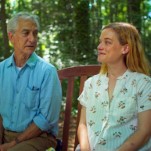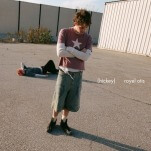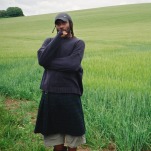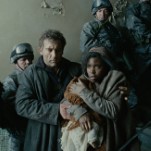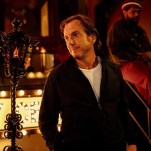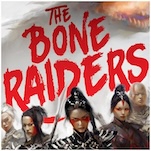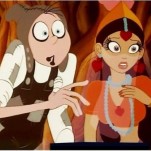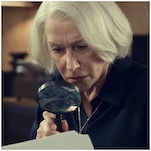Catching Up With Author Rachel Cantor
You can stop at the title, A Highly Unlikely Scenario, or a Neetsa Pizza Employee’s Guide to Saving the World, and know Rachel Cantor’s new book will be unlike anything you’ve ever read. Cantor’s debut novel, a whimsical, satirical narrative full of vibrant humor, combines fast food chains inspired by philosophers and mathematicians, unconventional romance, time travel, adventure and even Marco Polo for good measure. Cantor sat down with Paste to discuss A Highly Unlikely Scenario, her writing style and what to expect from her next novel.
Paste: The novel possesses a very original premise. Did any other writers or novels influence its inception?
Cantor: Thank you! I don’t think there’s another book out there like A Highly Unlikely Scenario, or a Neetsa Pizza Employee’s Guide to Saving the World! I’m not aware of any books that directly influenced this book. I did read a lot of Italo Calvino when I was young, and, in particular, books where he tells fantastic stories in historical settings. Also, in the final section, my characters see their future in a quivering aleph. This is an homage to the Borges story “The Aleph.”
Paste: The historical and tangential playfulness of the novel reminded us of Thomas Pynchon’s writing—minus his convoluted style. Was accessibility something you consciously aimed for? Do you think imaginative literature loses something when it’s difficult to understand?
Cantor: I wouldn’t be willing to say that literature should or should not be difficult: it depends on the book, doesn’t it? Lots of great books (obviously) demand a lot of their readers, and rightfully so. What I wanted with this book, though, was to have fun. I wanted to invent a crazy world we’ve never seen before (where Whigs, Dadaists, Heraclitans and others vie for converts through proprietary fast-food chains, and where everyone’s under threat from radical book groups), and to populate it with characters we care about (Leonard, complaints guy for a national Pythagorean pizza chain; Sally, his warrior-librarian girlfriend; Felix, his seven-year-old comic-book writing nephew; and Carol, his neo-Maoist sister). I wanted to give them trials and put them in peril, and so on. For me, this was enormously fun, and I hope it is for the reader, too. There is actually a rather complex cosmology underpinning the book, but the story can absolutely be read at face value. If the book entertains and delights the reader, then as far as I’m concerned, it’s a success.
Paste: The novel’s contents appear postmodern, but its structure is classic. What do you like about classical storytelling in the postmodern age?
Cantor: The book is a mash-up of at least five genres: it’s a literary novel about a couple that has an adventure, and romance, in a fantastic world, traveling in time to a different historical period. But you’re right: despite that mix of genres, there’s a clear storyline. In the three acts, Leonard (and, eventually, Sally) saves the world three times. Each act has, I hope, a classical movement of rising action followed by a denouement, and in each act, more is required of our heroes with the result that, by the end, they are finally worthy of their destiny. I don’t always use this kind of structure, but it seemed a good choice for this type of tale.
-

-

-

-

-

-

-

-

-

-

-

-

-

-

-

-

-

-

-

-

-

-

-

-

-

-

-

-

-

-

-

-

-

-

-

-

-

-

-

-

